Find Help
More Items From Ergsy search
-
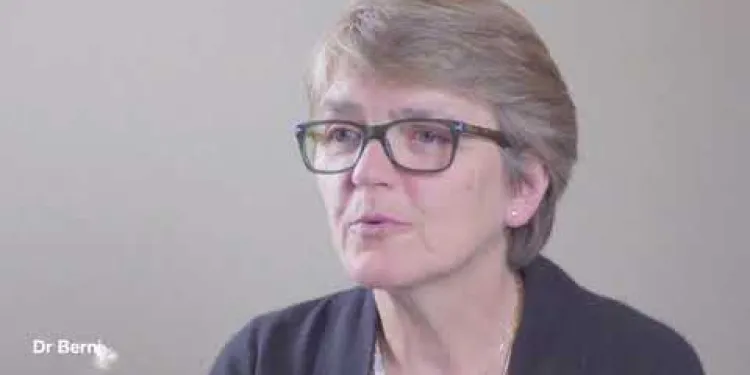
An introduction to frontotemporal dementia (FTD) (part 1/3)
Relevance: 100%
-

Living with changes in behaviour in frontotemporal dementia (FTD) (part 3/3)
Relevance: 82%
-
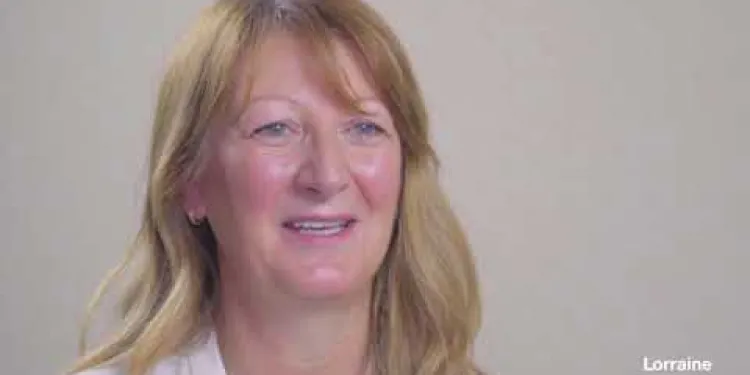
Getting help and support with frontotemporal dementia (FTD) (part 2/3)
Relevance: 74%
-
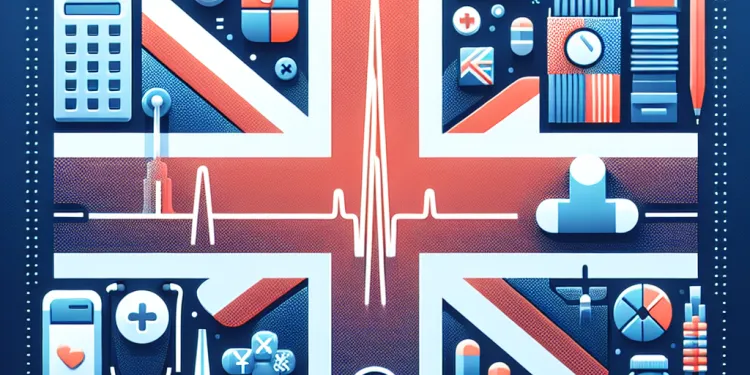
Is there a cure for dementia?
Relevance: 70%
-

What is dementia?
Relevance: 67%
-
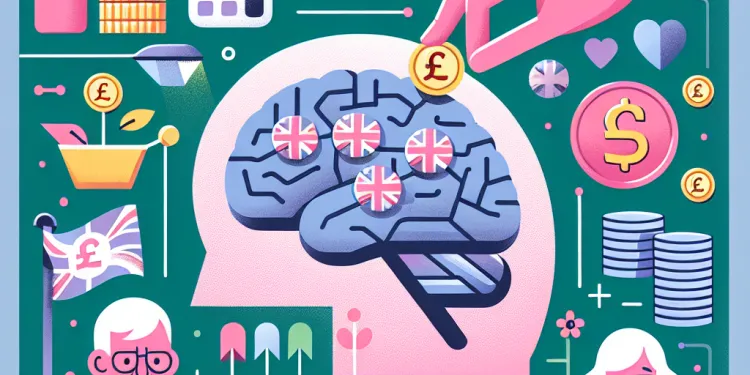
Can dementia affect younger people?
Relevance: 63%
-
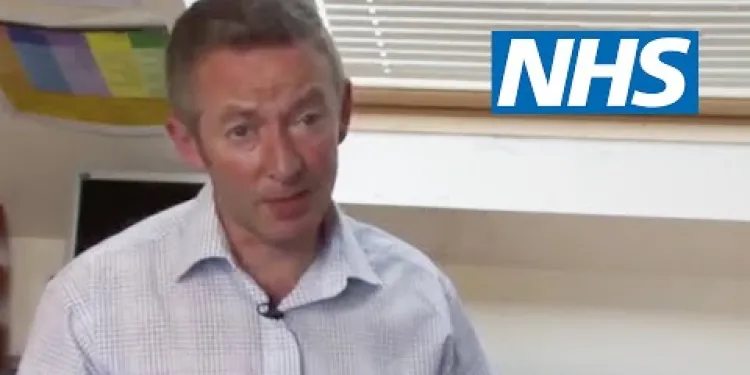
Early onset dementia | NHS
Relevance: 60%
-
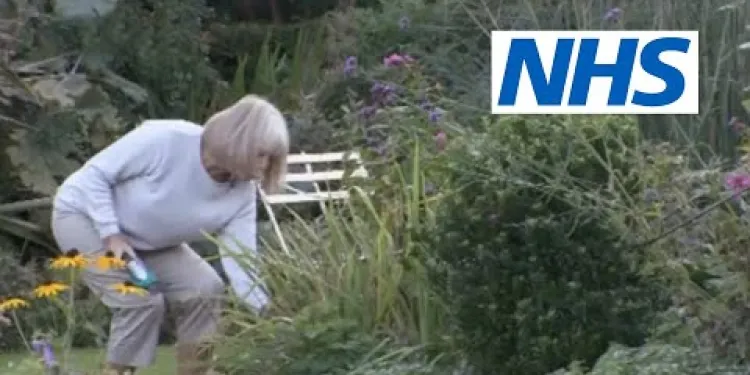
Living with dementia | NHS
Relevance: 57%
-

How does dementia progress over time?
Relevance: 56%
-
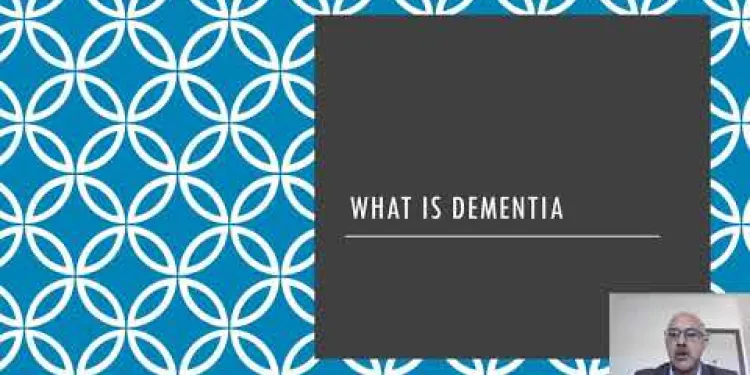
Dementia by Dr Alex Kakoullis, Coventry and Warwickshire Partnership NHS Trust
Relevance: 51%
-
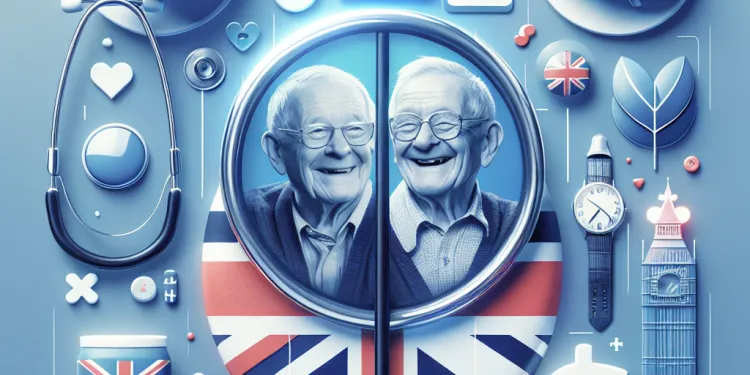
How is dementia diagnosed?
Relevance: 51%
-

What is dementia?
Relevance: 50%
-
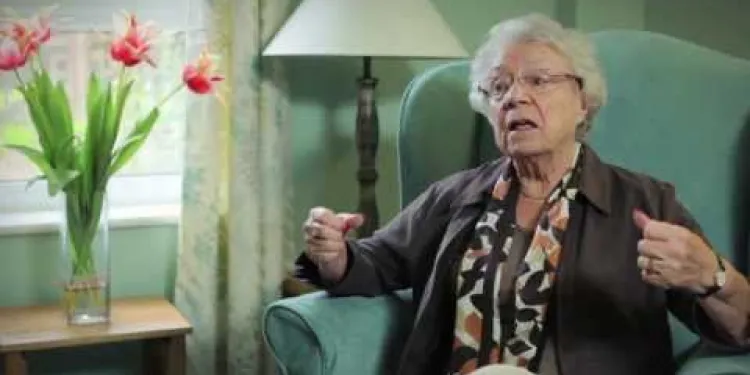
Dementia Care at Colten Care
Relevance: 49%
-
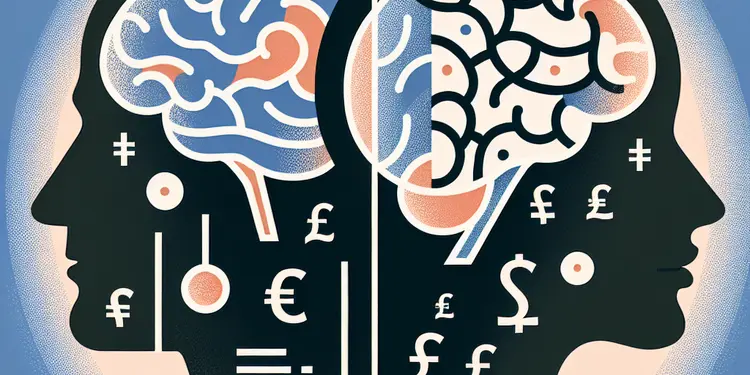
Do male and female brains age differently regarding dementia risk?
Relevance: 48%
-
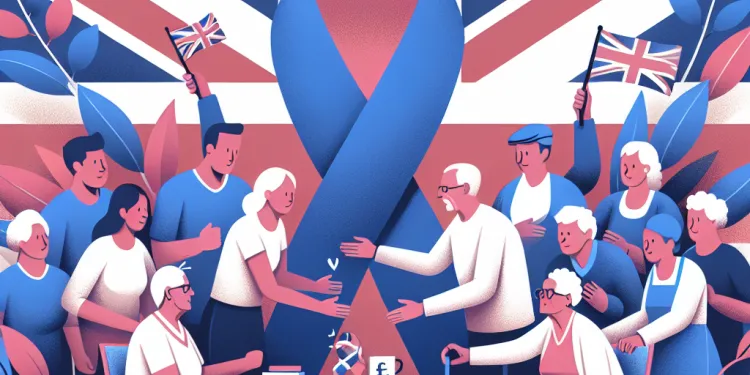
Are there any support groups for people with dementia in the UK?
Relevance: 48%
-
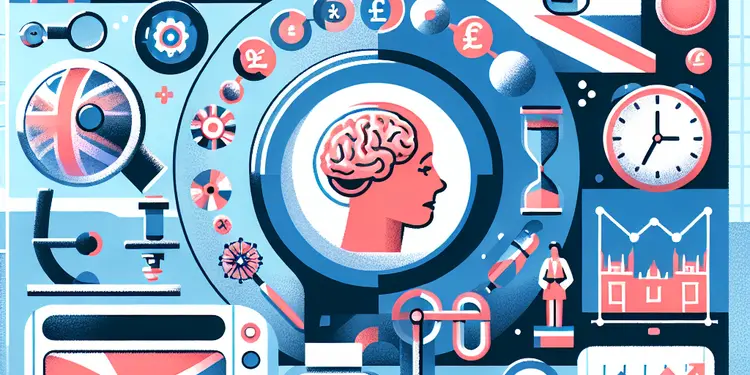
Is there scientific evidence linking menopause to dementia?
Relevance: 47%
-

Are there specific types of dementia linked to menopause?
Relevance: 47%
-
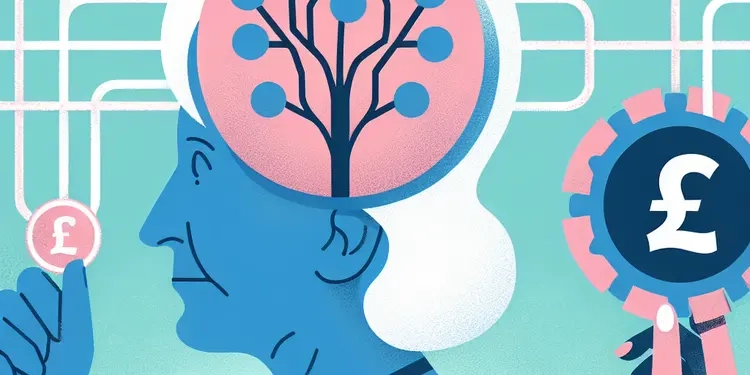
What are the links between menopause and dementia?
Relevance: 47%
-

Do genetics play a role in dementia risk post-menopause?
Relevance: 46%
-

Can live-in care support individuals with dementia?
Relevance: 46%
-

Is the age of menopause onset related to dementia risk?
Relevance: 46%
-

How common is it for women to develop dementia after menopause?
Relevance: 45%
-

What further research is needed about menopause and dementia?
Relevance: 45%
-
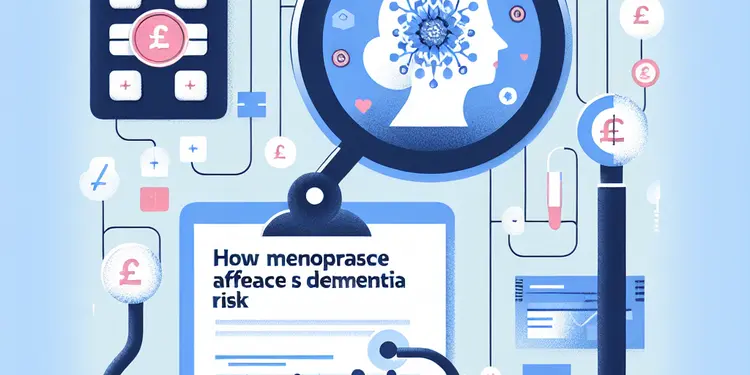
How does menopause potentially affect dementia risk?
Relevance: 44%
-
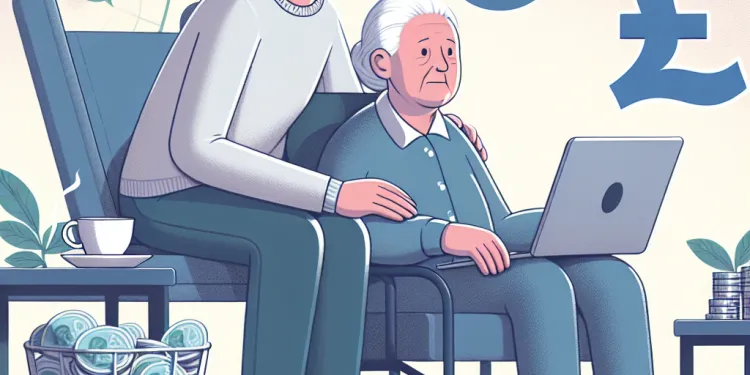
What role do carers play for those living with dementia?
Relevance: 44%
-
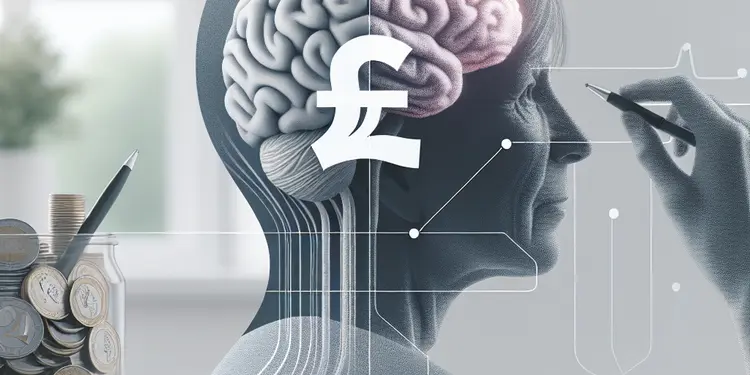
What symptoms can overlap between menopause and the early stages of dementia?
Relevance: 43%
-

Can hormone replacement therapy (HRT) impact dementia risk?
Relevance: 42%
-
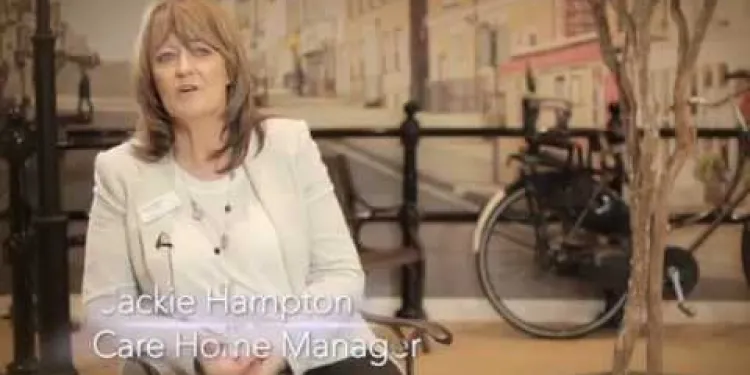
The role of care homes dedicated to caring for people living with dementia and memory loss
Relevance: 42%
-

Can lifestyle changes during menopause help reduce dementia risk?
Relevance: 42%
-
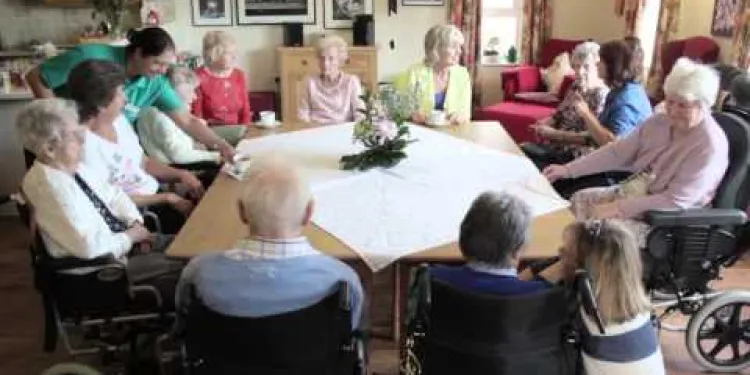
Fernhill Dedicated Dementia Care Home - a relatives perspective
Relevance: 38%
-
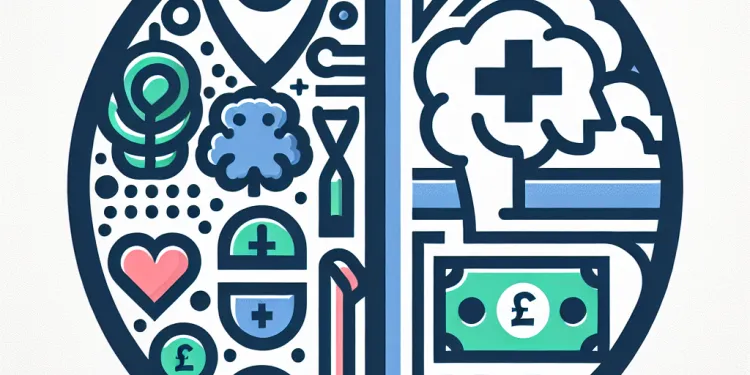
What are the common symptoms of dementia?
Relevance: 35%
-

How can I support a loved one with dementia?
Relevance: 32%
-

What financial support is available for people with dementia?
Relevance: 32%
-
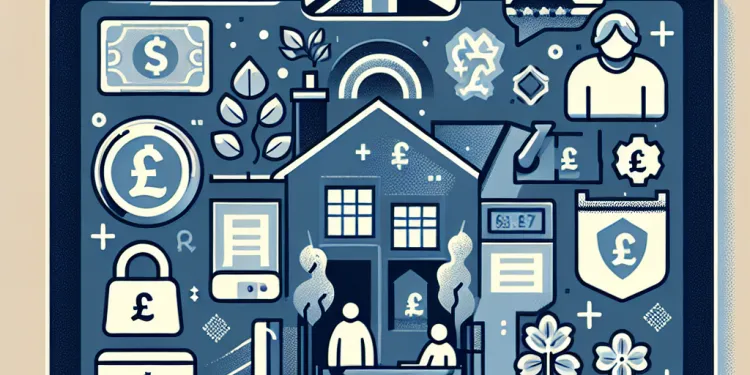
What lifestyle changes can help someone with dementia?
Relevance: 31%
-
What is dementia?
Relevance: 26%
-
Is there a cure for dementia?
Relevance: 26%
-
What is dementia?
Relevance: 26%
-
Is there a cure for dementia?
Relevance: 26%
-

What is a dementia-friendly community?
Relevance: 26%
-
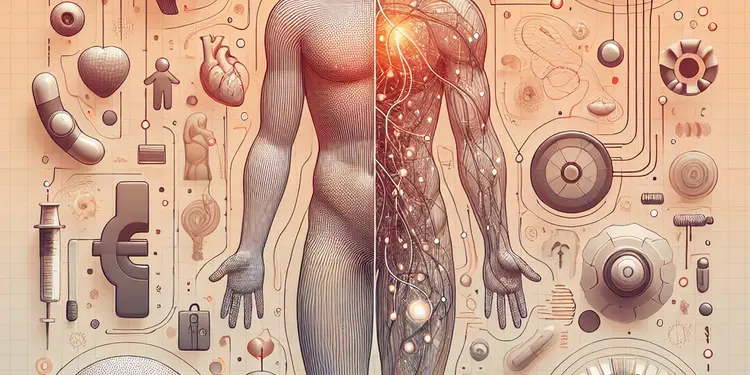
How does motor neurone disease affect the body?
Relevance: 25%
Getting Help and Support with Frontotemporal Dementia (FTD) (Part 2/3)
NHS Services
The National Health Service (NHS) provides comprehensive support for individuals diagnosed with frontotemporal dementia. Your GP is often the first point of contact and can refer you to a specialist, such as a neurologist or a geriatric psychiatrist. These specialists can offer a more definitive diagnosis and tailor a treatment plan to manage symptoms. The NHS also provides various community services, including memory clinics, occupational therapy, and speech and language therapy, which are crucial for maintaining quality of life.
Local Authority Support
Local councils can offer social care services that assist both the person with FTD and their families. These services may include home care visits, respite care, and adaptations to your home to make daily living easier. Assessments can be arranged to determine your specific needs and how best to meet them. Councils can also provide information on local support groups and other resources tailored to dementia care.
Charity and Voluntary Sector
Numerous charity organizations in the UK offer invaluable support to those affected by FTD. The Alzheimer’s Society and Dementia UK provide information, helplines, and support groups. Organizations like Rare Dementia Support offer specialized resources for rarer types of dementia, including frontotemporal dementia. These charities often provide both in-person and online support, making it easier to find help that fits your schedule and needs.
Financial Support
Financial assistance can be crucial for families dealing with FTD. Disability benefits such as Personal Independence Payment (PIP) or Attendance Allowance may be available to those who meet the criteria. Carer's Allowance can also offer financial relief to those who spend a significant amount of time caring for someone with FTD. It's advisable to consult with a benefits advisor to understand what financial support you can access.
Education and Training
Educating yourself and your family about frontotemporal dementia is vital. Many organizations offer training programs and educational resources aimed at improving understanding and management of FTD. Workshops, online courses, and printed materials can equip you with the knowledge to better handle the challenges posed by this condition.
Getting Help and Support with Frontotemporal Dementia (FTD) in the UK: Part 2
Accessing Medical Assistance
For individuals dealing with frontotemporal dementia (FTD) in the UK, securing proper medical assistance is vital. Begin by consulting your GP, who can provide referrals to specialists like neurologists or psychiatrists experienced in dementia care. In the UK, the NHS offers various services devoted to dementia, including memory clinics that perform comprehensive assessments and diagnostic evaluations, ensuring proper support is in place.
Engaging with Support Groups
Support groups play a key role in helping individuals and families cope with FTD. In the UK, organizations such as the Alzheimer’s Society and Dementia UK offer support groups and resources specifically aimed at frontotemporal dementia. These groups provide a safe space to share experiences, gain emotional support, and learn from others facing similar challenges. Participating in these groups can be incredibly comforting and informative, bringing families together to tackle FTD collectively.
Exploring Financial Assistance
Managing FTD often comes with financial challenges. In the UK, several financial support options exist to alleviate the burden. These include attendance allowance, personal independence payments (PIP), and carers allowance for those providing substantial care. It's also advisable to look into local council funding for social care services. Understanding and applying for these benefits can significantly alleviate the financial strain on families affected by FTD.
Caring for Caregivers
Supporting caregivers is just as crucial as supporting those with FTD. Organizations such as Carers UK offer resources and helplines dedicated to aiding caregivers with practical advice, financial guidance, and emotional support. It's important for caregivers to take advantage of respite care services, allowing them to recharge and continue providing high-quality care to their loved ones.
Getting Help and Support with Frontotemporal Dementia (FTD)
Understanding Care Options
In the United Kingdom, individuals with frontotemporal dementia (FTD) have access to various care services designed to support both the patient and their family. One of the primary avenues for assistance is through the National Health Service (NHS). It's crucial to schedule regular consultations with a GP or neurologist who can provide personalized care plans tailored to the needs of someone with FTD.
Support from Social Services
Local councils in the UK offer social services that can significantly ease the burden on family caregivers. These services can include assistance with daily activities, respite care, and adaptations needed in the home environment. An assessment can be requested to determine the level of care required, and a specific plan with services provided can be implemented.
Charities and Community Organizations
Several UK-based charities, such as the Alzheimer’s Society and Dementia UK, provide invaluable resources for those affected by FTD. These organizations offer support lines, local support groups, and informational resources that can help families understand the condition better and stay informed about advances in care and research.
Accessing Mental Health Support
Frontotemporal dementia can have profound emotional and psychological impacts not only on the individual but also on their family and friends. Access to mental health services, including counseling and therapy, can be arranged through referrals from GPs. Additionally, local NHS mental health teams may offer specialized dementia support.
Planning for the Future
Early discussions about future care preferences, financial planning, and legal matters, such as power of attorney, can provide clarity and security for individuals and their families. Engaging with legal advisors experienced in elder law and dementia-related issues is recommended to ensure that all decisions made reflect the wishes and needs of the person with FTD.
Getting Help and Support with Frontotemporal Dementia (FTD) (Part 2/3)
Accessing Professional Care Services
In the UK, individuals diagnosed with frontotemporal dementia (FTD) can access a range of professional care services tailored to their needs. The National Health Service (NHS) provides comprehensive support through memory clinics, where specialized staff offer diagnosis and management tailored to FTD. These clinics are essential for those newly diagnosed, as they can guide patients and families through the complexities of FTD care.
Community and Voluntary Support
Outside formal healthcare services, numerous charities and community organizations in the UK offer indispensable support for families dealing with FTD. Alzheimer's Society and Dementia UK, for instance, provide helplines and local support groups where individuals can connect and share experiences. Such networks are vital for emotional support and can offer practical advice on living with dementia.
Financial Support and Legal Advice
Managing FTD can be financially challenging. Individuals may be eligible for benefits such as Personal Independence Payment (PIP) or Attendance Allowance, depending on the severity of their condition. It is advisable to seek guidance from a social worker or Citizens Advice Bureau to navigate the benefits system effectively. Additionally, discussing legal implications with a solicitor, such as setting up Power of Attorney, ensures autonomy and proper management of affairs as the condition progresses.
Educational Resources and Training
Understanding frontotemporal dementia can drastically improve the quality of support provided. Organizations such as the Alzheimer's Society offer training sessions and resources for caregivers to learn more about FTD's unique challenges. These educational resources equip families and caregivers with the knowledge to manage symptoms, communication issues, and behavioral changes effectively.
Getting Help and Support with Frontotemporal Dementia (FTD) in the UK (Part 2/3)
Understanding Available Resources
Living with a diagnosis of frontotemporal dementia (FTD) can be overwhelming for both patients and their families. In the UK, numerous resources are available to help manage this condition. These resources range from healthcare services to support groups aimed at providing the educational, emotional, and practical support required for managing FTD. Understanding what is available can empower families to make informed decisions and access the support they need.Healthcare Services for FTD
The National Health Service (NHS) plays a crucial role in the ongoing care of individuals with FTD. Patients are usually referred to neurologists or specialist memory clinics that are better equipped to handle such cases. It's important to have regular appointments and reviews with these healthcare professionals, as they can offer medical advice, prescribe medications if necessary, and assess the progression of the disease. Access to occupational therapists, physiotherapists, and speech and language therapists may also be provided to address the varied symptoms of FTD.Local and National Support Groups
Support groups offer an invaluable space for patients and caregivers to share experiences, learn from one another, and build a sense of community. Organizations such as the Alzheimer’s Society UK and Rare Dementia Support provide resources and host support groups specifically for those affected by FTD. These groups not only offer emotional support but can also be a source of practical advice on day-to-day challenges faced by those dealing with FTD.Financial Assistance and Legal Support
Managing the financial and legal implications of an FTD diagnosis is vital. In the UK, people with FTD may be eligible for benefits such as Personal Independence Payment (PIP) or Employment and Support Allowance (ESA). It is also advisable to speak with a solicitor about setting up a Lasting Power of Attorney (LPA) to manage legal and financial matters as the disease progresses. Local Citizens Advice Bureaux can often provide guidance or direct you to specialized services.Next Steps
Securing help and support for frontotemporal dementia involves reaching out for the appropriate services and tapping into community resources. In the final part of this series, we will explore how carers can find support and strategies for day-to-day living with FTD.Getting Help and Support with Frontotemporal Dementia (FTD) (Part 2/3)
NHS Services
The National Health Service (NHS) can help people with frontotemporal dementia. Start by visiting your doctor. Your doctor can send you to a specialist, like a brain doctor or an old age doctor. These specialists will check what’s wrong and suggest ways to help you. The NHS can also help with community services like memory clinics and therapy for talking and doing tasks. These services help you have a good life.
Local Authority Support
The local council can help you and your family. They can arrange home visits, breaks for carers, and changes to your home to make life easier. You can have a meeting to talk about what you need. Councils can also tell you about groups and resources that can help people with dementia.
Charity and Voluntary Sector
Many charities in the UK can help with frontotemporal dementia. The Alzheimer’s Society and Dementia UK offer information, hotlines, and support groups. Rare Dementia Support has special help for types of dementia like frontotemporal dementia. These charities provide help both in person and online, so you can find support that works for you.
Financial Support
Money help can be important when dealing with FTD. You might get money help like Personal Independence Payment (PIP) or Attendance Allowance if you qualify. If you care for someone with FTD a lot, you might also get Carer's Allowance. It's a good idea to talk to a benefits advisor to learn about money help you can get.
Education and Training
Learning about frontotemporal dementia is important. Many organizations teach how to understand and manage FTD. You can find workshops, online lessons, and booklets to learn more. This knowledge can help you deal with FTD better.
Getting Help and Support with Frontotemporal Dementia (FTD) in the UK: Part 2
Accessing Medical Assistance
If you or someone you know has frontotemporal dementia (FTD) in the UK, getting the right medical help is very important. Start by talking to your family doctor (GP). They can send you to see specialists like doctors who know a lot about dementia. In the UK, the NHS has services to help people with dementia. These include memory clinics that can check how your brain is working and make sure you get the support you need.
Engaging with Support Groups
Support groups are very helpful for people with FTD and their families. In the UK, places like the Alzheimer’s Society and Dementia UK have special groups for people with frontotemporal dementia. These groups offer a safe place to talk about your experiences, get support, and learn from others who understand what you're going through. Being part of these groups can help you feel less alone and bring families together to face FTD.
Exploring Financial Assistance
Dealing with FTD can be expensive. In the UK, there are ways to get financial help. You might be able to get things like attendance allowance, personal independence payments (PIP), and carers allowance if you look after someone a lot. Check with your local council about funding for social care services. Knowing about these benefits and applying for them can really help reduce the money worries for families dealing with FTD.
Caring for Caregivers
It's very important to help the people who take care of someone with FTD. Groups like Carers UK have resources and phone help for caregivers. They provide advice on money, practical help, and emotional support. Caregivers should use respite care services, which give them a break so they can rest and keep doing their best to care for their loved ones.
Getting Help and Support with Frontotemporal Dementia (FTD)
Understanding Care Options
In the UK, people with frontotemporal dementia (FTD) can get help from different care services. These services support both the person with FTD and their family. The National Health Service (NHS) is one place to get help. It is important to have regular meetings with a doctor. Doctors can make special care plans for someone with FTD.
Support from Social Services
Local councils in the UK can help family caregivers. They offer services that make caring for someone with FTD easier. This help can include things like daily activity support, taking breaks for caregivers, and changes needed at home. Families can ask for an assessment to see what help they need. Then, a plan with services can be made.
Charities and Community Organizations
There are charities in the UK that help people with FTD. Some of these are the Alzheimer’s Society and Dementia UK. These groups have support lines, local groups, and information to help families learn about FTD. They keep families updated on care and research.
Accessing Mental Health Support
FTD can affect emotions and mental health for the person and their family and friends. Getting mental health support, like talking to a counselor, can help. People can get a referral from their doctor for this support. Local NHS teams might have special help for dementia.
Planning for the Future
It’s good to talk early about future care wishes, money plans, and legal things, like who will make decisions for the person with FTD. Meeting with legal experts who know about elder law can make sure all decisions are right for the person with FTD.
Getting Help and Support with Frontotemporal Dementia (FTD) (Part 2/3)
Care from Professionals
If someone has frontotemporal dementia (FTD) in the UK, they can get help from doctors and nurses. The National Health Service (NHS) has special memory clinics. These clinics help people find out if they have FTD and how to care for it. The staff at these clinics help people and their families understand FTD and what to do next.
Help from the Community
There are many charities in the UK that help families dealing with FTD. Groups like the Alzheimer's Society and Dementia UK have helplines you can call. They also have local support groups where people can meet and talk. These groups give emotional support and useful tips for living with dementia.
Money and Legal Advice
FTD can be expensive to manage. People with FTD might get money help, like Personal Independence Payment (PIP) or Attendance Allowance. It depends on how much help they need. Speaking to a social worker or someone at the Citizens Advice Bureau can help you understand what money help you can get. It's also a good idea to talk to a lawyer about legal things, like Power of Attorney, to manage things as FTD gets worse.
Learning and Training
Knowing more about frontotemporal dementia can help people give better care. The Alzheimer's Society offers learning sessions and materials to teach caregivers about FTD. These resources help families and caregivers understand and manage symptoms, talk better with the person, and handle any changes in behavior.
Getting Help and Support with Frontotemporal Dementia (FTD) in the UK (Part 2/3)
Understanding Available Resources
Living with frontotemporal dementia (FTD) can be hard for people and their families. In the UK, there are many places to get help. These include healthcare services and support groups. These resources can provide useful information, emotional support, and practical help. Knowing what help is there can make it easier for families to make good choices and get the support they need.Healthcare Services for FTD
The National Health Service (NHS) helps people with FTD. Patients usually go to specialists who know about memory problems. It is important to have regular check-ups with these healthcare workers. They can give medical advice and medicine if needed. They can also check how the illness is progressing. People might also see occupational therapists, physiotherapists, and speech and language therapists to help with different symptoms of FTD.Local and National Support Groups
Support groups are very helpful for people with FTD and their caregivers. These groups let people share their experiences and learn from each other. In the UK, groups like the Alzheimer’s Society UK and Rare Dementia Support offer special help for people with FTD. Support groups can also help with practical advice on everyday problems that come with FTD.Financial Assistance and Legal Support
It is important to understand the money and legal side of having FTD. In the UK, people with FTD may get benefits like Personal Independence Payment (PIP) or Employment and Support Allowance (ESA). It's a good idea to talk to a lawyer about setting up a Lasting Power of Attorney (LPA) to manage your affairs as the illness progresses. Local Citizens Advice Bureaux can help you find the right help or direct you to other services.Next Steps
Finding help for frontotemporal dementia means contacting the right services and using community resources. In the final part of this series, we will discuss how carers can get support and find ways to manage daily life with FTD.Frequently Asked Questions
Useful Links
This website offers general information and is not a substitute for professional advice.
Always seek guidance from qualified professionals.
If you have any medical concerns or need urgent help, contact a healthcare professional or emergency services immediately.
Some of this content was generated with AI assistance. We’ve done our best to keep it accurate, helpful, and human-friendly.
- Ergsy carfully checks the information in the videos we provide here.
- Videos shown by Youtube after a video has completed, have NOT been reviewed by ERGSY.
- To view, click the arrow in centre of video.
- Most of the videos you find here will have subtitles and/or closed captions available.
- You may need to turn these on, and choose your preferred language.
- Go to the video you'd like to watch.
- If closed captions (CC) are available, settings will be visible on the bottom right of the video player.
- To turn on Captions, click settings .
- To turn off Captions, click settings again.
More Items From Ergsy search
-

An introduction to frontotemporal dementia (FTD) (part 1/3)
Relevance: 100%
-

Living with changes in behaviour in frontotemporal dementia (FTD) (part 3/3)
Relevance: 82%
-

Getting help and support with frontotemporal dementia (FTD) (part 2/3)
Relevance: 74%
-

Is there a cure for dementia?
Relevance: 70%
-

What is dementia?
Relevance: 67%
-

Can dementia affect younger people?
Relevance: 63%
-

Early onset dementia | NHS
Relevance: 60%
-

Living with dementia | NHS
Relevance: 57%
-

How does dementia progress over time?
Relevance: 56%
-

Dementia by Dr Alex Kakoullis, Coventry and Warwickshire Partnership NHS Trust
Relevance: 51%
-

How is dementia diagnosed?
Relevance: 51%
-

What is dementia?
Relevance: 50%
-

Dementia Care at Colten Care
Relevance: 49%
-

Do male and female brains age differently regarding dementia risk?
Relevance: 48%
-

Are there any support groups for people with dementia in the UK?
Relevance: 48%
-

Is there scientific evidence linking menopause to dementia?
Relevance: 47%
-

Are there specific types of dementia linked to menopause?
Relevance: 47%
-

What are the links between menopause and dementia?
Relevance: 47%
-

Do genetics play a role in dementia risk post-menopause?
Relevance: 46%
-

Can live-in care support individuals with dementia?
Relevance: 46%
-

Is the age of menopause onset related to dementia risk?
Relevance: 46%
-

How common is it for women to develop dementia after menopause?
Relevance: 45%
-

What further research is needed about menopause and dementia?
Relevance: 45%
-

How does menopause potentially affect dementia risk?
Relevance: 44%
-

What role do carers play for those living with dementia?
Relevance: 44%
-

What symptoms can overlap between menopause and the early stages of dementia?
Relevance: 43%
-

Can hormone replacement therapy (HRT) impact dementia risk?
Relevance: 42%
-

The role of care homes dedicated to caring for people living with dementia and memory loss
Relevance: 42%
-

Can lifestyle changes during menopause help reduce dementia risk?
Relevance: 42%
-

Fernhill Dedicated Dementia Care Home - a relatives perspective
Relevance: 38%
-

What are the common symptoms of dementia?
Relevance: 35%
-

How can I support a loved one with dementia?
Relevance: 32%
-

What financial support is available for people with dementia?
Relevance: 32%
-

What lifestyle changes can help someone with dementia?
Relevance: 31%
-
What is dementia?
Relevance: 26%
-
Is there a cure for dementia?
Relevance: 26%
-
What is dementia?
Relevance: 26%
-
Is there a cure for dementia?
Relevance: 26%
-

What is a dementia-friendly community?
Relevance: 26%
-

How does motor neurone disease affect the body?
Relevance: 25%


